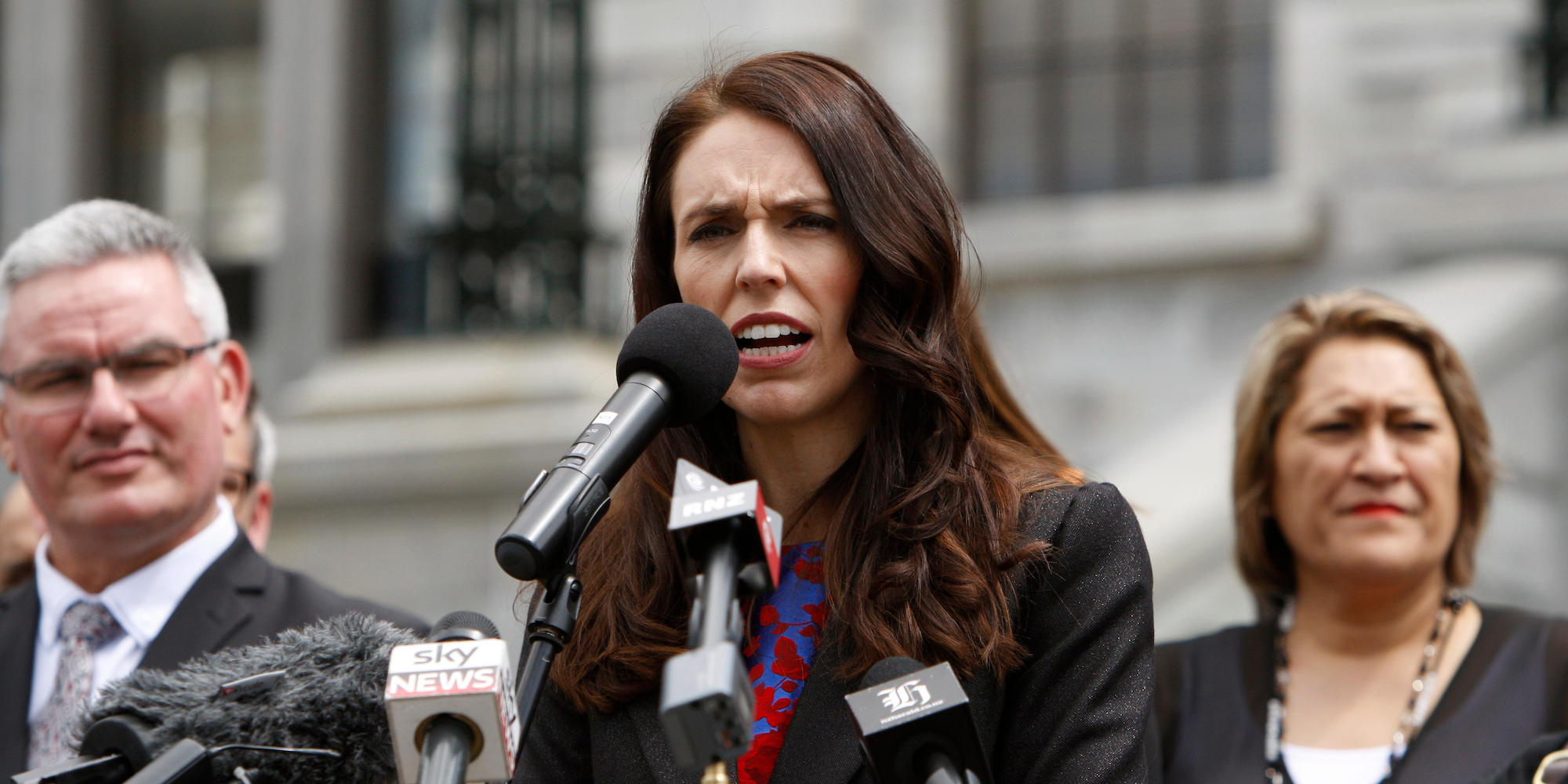- New Zealand officially banned the 74-page, racist manifesto written by the suspected gunman behind the deadly mosque attacks in Christchurch on March 15.
- Anyone found to possess the manifesto could face up to ten years in prison, and those caught distributing it could face up to 14 years in prison.
- The country’s chief censor said he is treating the document like ISIS propaganda, which is also banned.
- The country has already banned the possession and distribution of the 17-minute livestream of the attacks.
- Experts say the ban could backfire and risk making the gunman look like a martyr, and the document “forbidden fruit.”
New Zealand officially banned the manifesto written by the man accused of killing 50 people at two mosques in Christchurch earlier this month, as well as the livestream of the attacks.
Brenton Tarrant, a 28-year-old Australian, is suspected of carrying out the attacks on the Al Noor and Linwood mosques on March 15. He recorded and uploaded a livestream of the shootings to Facebook, as well as uploading a 74-page manifesto of his far-right views onto online forum 8chan the day before the massacre.
New Zealand’s Office of Film & Literature Classification, which made the decision to ban the document on Saturday, told people in possession of the publication to destroy their copies and remove hyperlinks to them online.

Anyone found possessing and distributing the manifesto could face up to 10 years and 14 years in prison respectively, The Associated Press reported.
The punishment for owning and sharing footage of the attack is not clear. While New Zealand's censors said they banned the entire 17-minute video, they warned that any excerpts or stills taken from the livestream that depict violence, injury, death, or promote terrorism, could also be illegal.
The censorship office made the possession and sharing of the livestream illegal last Wednesday.

Akin to ISIS propaganda
David Shanks, the country's Chief Censor, said the suspected shooter's manifesto "promotes murder and terrorism," and that his office was treating it like terrorist material from ISIS.
"We have dealt with terrorist promotional material before which was deliberately designed to inspire, encourage and instruct other like-minded individuals to carry out further attacks," he said.
"For example we have found a number of ISIS publications to be objectionable in previous decisions," he added. "This publication falls in the same category."

"There is an important distinction to be made between 'hate speech,' which may be rejected by many right-thinking people but which is legal to express, and this type of publication, which is deliberately constructed to inspire further murder and terrorism," Shanks said.
He added that journalists and researchers reporting on the attacks can either use the quotes already use in existing news reports, or apply for exemptions from the bans on the document and video.
"Do not support the murderous objectives of its author by republishing or distributing it."

'Forbidden fruit'?
Some experts, however, have questioned the ban, saying that it risks turning the gunman a martyr, lending legitimacy to his far-right ideology.
Stephen Franks, a spokesman for New Zealand's Free Speech Coalition, told The Associated Press the ban could make people more intrigued by the document as it now seems like "forbidden fruit."
"The damage and risks are greater from suppressing these things than they are from trusting people to form their own conclusions and to see evil or madness for what it is," he added.

Claus Blok Thomsen, a Danish journalist who covered the trial of Norwegian far-right mass shooter Anders Breivik - who killed 77 people in 2011, and who inspired Tarrant - also said the censorship risks making Tarrant a martyr.
He told the AP that during Breivik's trial reporters only reported court proceedings and left out discussions of his far-right ideology, which angered some family members of the victims.
He said: "They said when we start to censor ourselves, we just make him into a martyr. We are not able to learn how mad this guy was, what his thinking was, until everything is out in the light."
Shanks said, according to the AP, that he and his team worried that the censorship would bring more attention to the document, but said it had to treat it the same way as terrorist propaganda.

Jacinda Ardern, New Zealand's prime minister, vowed last week never to say the shooter's name in public, and some New Zealand news outlets have followed suit by keeping mentions of his name to a minimum.
New Zealand also banned semiautomatic and assault rifles less than a week after the massacre.
Multiple internet service providers in Australia and New Zealand also banned websites found hosting the livestream last week.

